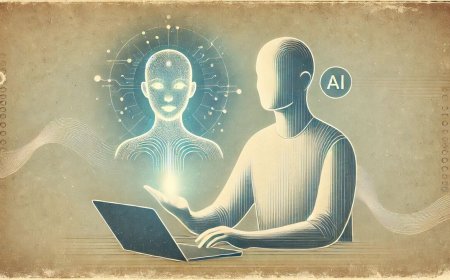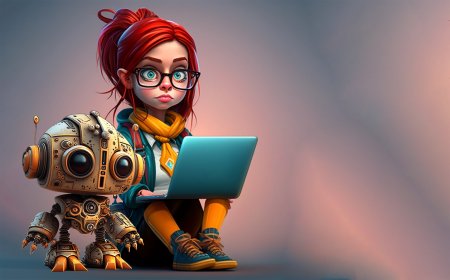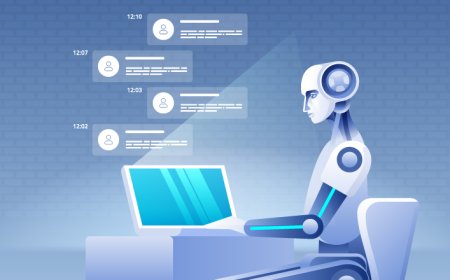How AI is Transforming the Gaming Industry
Discover how AI is revolutionizing the gaming industry, from enhancing game development to transforming player experiences and business models. Explore the future of AI in gaming!

Introduction
Artificial Intelligence (AI) is rapidly becoming a cornerstone of modern technology, revolutionizing various industries, including gaming. The influence of AI in gaming is growing at an unprecedented rate, transforming how games are developed, how players experience them, and how the industry operates as a whole. This article aims to explore the profound impact of AI on game development, player experience, and the broader gaming industry.
1. The Role of AI in Game Development
- Procedural Content Generation (PCG)
Procedural Content Generation (PCG) is a technique where AI algorithms create game content automatically. This method has several benefits, including saving time and resources for developers. For instance, randomly generated maps and levels can provide endless replayability, keeping players engaged for longer periods. Games like "No Man's Sky" and "Minecraft" are excellent examples of PCG, where worlds are generated procedurally, offering unique experiences every time a player starts a new game.
- Enhanced Game Design
AI is instrumental in creating complex narratives and intricate game worlds. By analyzing player data and preferences, AI can help developers craft stories that are more engaging and immersive. Tools and technologies like machine learning and natural language processing enable smarter game design, allowing for more dynamic and adaptive gameplay. For example, AI can generate quests and side missions that adapt to the player's actions, making the game feel more personalized and interactive.
- Realistic Graphics and Animations
AI plays a crucial role in rendering lifelike characters and environments. Advanced AI algorithms can create realistic textures, lighting, and animations, making games look more authentic. Games like "Red Dead Redemption 2" and "The Last of Us Part II" leverage AI for stunning visuals, providing players with an immersive experience that blurs the line between reality and virtual worlds.
- Bug Detection and Quality Assurance
AI-driven tools are increasingly being used for identifying and resolving bugs in games. These tools can analyze vast amounts of data to detect issues that might go unnoticed by human testers. AI ensures game stability by continuously monitoring performance and flagging potential problems before they affect the player experience. This proactive approach helps maintain the quality and reliability of games, ensuring a smoother experience for players.
2. AI and Player Experience
- Smarter Non-Playable Characters (NPCs)
AI creates more intelligent and adaptive Non-Playable Characters (NPCs), making interactions within the game more realistic and engaging. NPCs can now respond to player actions in meaningful ways, adding depth to the gameplay. For example, in games like "The Witcher 3: Wild Hunt," NPCs react differently based on the player's choices, creating a more immersive and dynamic world.
- Personalized Gaming Experiences
AI enables adaptive difficulty levels based on player behavior, ensuring that the game remains challenging but not frustrating. Tailored storylines and outcomes using AI algorithms make each player's journey unique. For instance, games like "Horizon Zero Dawn" use AI to adjust the difficulty dynamically, providing a personalized experience that keeps players engaged.
- Real-Time Decision Making
AI's role in creating immersive real-time interactions is significant. In multiplayer scenarios, AI helps balance gameplay, ensuring fairness and enjoyment for all players. For example, in games like "League of Legends," AI algorithms match players based on skill levels, creating balanced teams and enhancing the overall gaming experience.
- Voice and Emotion Recognition
AI integration in recognizing player emotions is becoming more common. Voice-controlled features in games allow players to interact with the game world using natural language, making the experience more intuitive. Games like "Sea of Thieves" use voice recognition to enable players to communicate and coordinate with each other more effectively, enhancing teamwork and strategy.
3. AI in Gaming Business Models
- Advanced Analytics for Player Behavior
AI analyzes player data to improve retention rates and enhance the overall gaming experience. By understanding player behavior, developers can make informed decisions about game updates and new features. For example, AI can identify patterns in player engagement, helping developers create content that keeps players coming back. This data-driven approach is crucial for monetization strategies like microtransactions, ensuring that players are satisfied with their purchases.
- Dynamic Pricing Models
AI optimizes pricing strategies by analyzing player preferences and purchasing habits. Personalized offers based on player behavior can increase sales and customer satisfaction. For instance, AI can determine the best time to offer discounts or special promotions, maximizing revenue for game developers.
- Automated Customer Support
Chatbots powered by AI handle player queries efficiently, reducing response times and improving support quality. These chatbots can provide instant assistance, resolving issues quickly and enhancing the player experience. For example, AI-driven customer support can help players troubleshoot technical problems or answer questions about game mechanics, ensuring a smooth and enjoyable gaming experience.
4. Challenges and Ethical Considerations
- Data Privacy Concerns
Collecting and analyzing player data raises significant privacy concerns. It is essential for game developers to implement transparent data usage policies, ensuring that player data is handled responsibly. Players need to trust that their information is secure and used ethically, maintaining the integrity of the gaming community.
- AI Bias in Gaming
Risks of bias in AI algorithms can affect the fairness of gameplay. It is crucial to mitigate these biases to ensure that all players have an equal and enjoyable experience. Solutions include diverse data sets and regular audits of AI systems to identify and correct any biases.
- Over-Reliance on AI
Balancing automation with human creativity is essential in game development. While AI can streamline many processes, it is important not to lose the "human touch" that makes games unique and engaging. Over-reliance on AI could lead to generic and uninspired gameplay, lacking the creativity and innovation that human developers bring.
5. Future of AI in the Gaming Industry
- Emerging Technologies
AI is set to play a significant role in virtual reality (VR) and augmented reality (AR) gaming. By integrating AI with these technologies, developers can create more immersive and interactive experiences. For example, AI can enhance VR environments by adapting to player movements and actions, making the experience more realistic and engaging.
- Proactive AI Systems
Predictive AI can enhance player engagement by anticipating and adapting to industry trends. AI-driven tools can help developers stay ahead of the curve, creating content that meets the evolving preferences of players. For instance, AI can predict which game features will be popular, allowing developers to focus on those areas and improve player satisfaction.
- AI and Cross-Platform Experiences
AI enables seamless transitions between devices, enhancing multi-platform gaming experiences. Players can enjoy their favorite games on different devices without losing progress or data. AI ensures that the gaming experience is consistent and enjoyable, regardless of the platform used.
Conclusion
AI is transforming the gaming industry in numerous ways, from enhancing game development to improving player experiences and optimizing business models. While there are challenges and ethical considerations to address, the future potential of AI in gaming is immense. By balancing the opportunities and challenges, the gaming industry can continue to innovate and provide players with unforgettable experiences.
Frequently Asked Questions (FAQs)
-
How is AI used in creating smarter NPCs?AI algorithms enable NPCs to respond to player actions in more realistic and adaptive ways, making interactions within the game more engaging.
-
What are the benefits of AI-driven procedural content generation? AI-driven PCG saves time and resources for developers, provides endless replayability, and keeps players engaged with unique experiences.
-
How does AI impact the gaming business model? AI analyzes player data to improve retention rates, optimizes pricing strategies, and enhances customer support, maximizing revenue for game developers.
-
What are the ethical concerns of using AI in gaming? Ethical concerns include data privacy issues, risks of bias in AI algorithms, and the potential loss of human creativity in game development.
-
What is the future of AI in virtual and augmented reality gaming? AI will enhance VR and AR gaming by creating more immersive and interactive experiences, adapting to player movements and actions in real-time.
-
How does AI help in bug detection and quality assurance? AI-driven tools analyze vast amounts of data to detect issues, monitor performance, and ensure game stability, providing a smoother experience for players.
-
What role does AI play in personalized gaming experiences? AI enables adaptive difficulty levels and tailored storylines based on player behavior, making each player's journey unique and engaging.
-
How does AI enhance real-time decision making in games? AI helps create immersive real-time interactions and balances gameplay in multiplayer scenarios, ensuring fairness and enjoyment for all players.
-
What are the challenges of over-reliance on AI in game development? Over-reliance on AI could lead to generic and uninspired gameplay, lacking the creativity and innovation that human developers bring.
-
How does AI integrate with cross-platform gaming experiences?AI enables seamless transitions between devices, ensuring a consistent and enjoyable gaming experience regardless of the platform used.
What's Your Reaction?







































